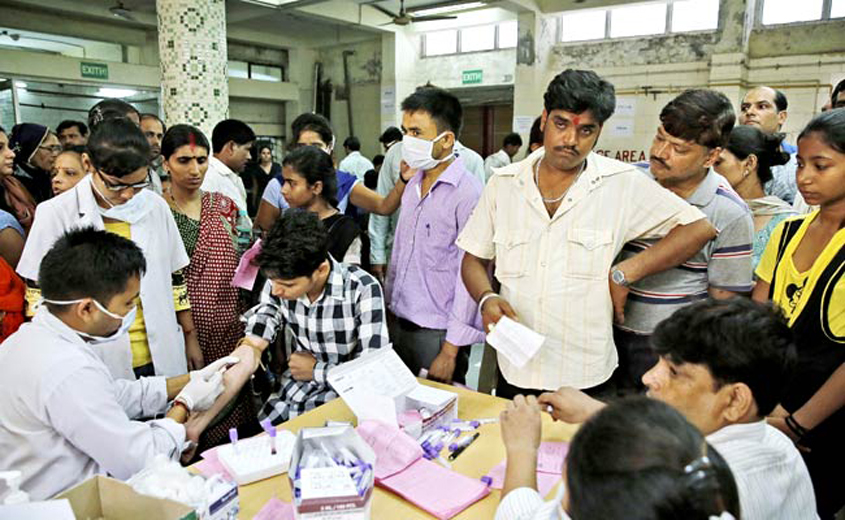Despite the Aam Aadmi Party (AAP)-led Delhi government’s “free treatment to poor” policy in place, the non-availability of basic drugs and medicines at dispensaries and hospitals under the aegis of the Delhi government, is forcing poor patients to buy them from private chemists. The Delhi government has not been able to ensure the proper supply of essential drugs and poor people are being forced to bear the burden of rising medical bills.
As many as 36 hospitals and 260 dispensaries are under the aegis of the Delhi government, and are provided essential drugs and surgical items by the Central Procurement Agency (CPA) which is the nodal body for the procurement and supply of drugs. In 2015, the AAP government had decided to allow the CPA to make all purchases, including those which cost below Rs 5 lakh and were earlier made by the hospital authorities. That decision seemed to have a positive effect for a while and initially there was no shortage of drugs in the hospitals. However, later, the supply of medicines to these dispensaries and hospitals have become irregular. Manju Malik, who came to a district hospital in west Delhi’s Palam area for getting her son treated, said: “With no medicines in the dispensary, I am forced to purchase them at a high cost from outside. We have already incurred much expense to meet the chemist’s bills prescribed by the doctors here.” While doctors prescribe medicines for a week, poor patients buy medicines only for two or three days.
During a reality check by The Sunday Guardian, shortage of medicine was visible at another local dispensary in the Dwarka area. Sanjay, a vegetable vendor who came to a dispensary in Dwarka for treatment for a dog bite, said, “The doctor denied me treatment, saying ‘we don’t have Rabipur’ (a vaccine to treat patients of dog bite cases). Before visiting this dispensary, I had already visited several other dispensaries, but at all the places, I was told that dispensaries didn’t have the vaccine to treat dog bite patients.” Patients at East Delhi’s Kalyanpuri area had similar complaints. Ramkumar, a daily wage labourer, said: “Medicines for the treatment of fever are not available in this dispensary. There is always a shortage of drugs.”
“Although the Delhi government has already published the Essential Medicines List 2016 of 100 essential medicines to treat patients on a daily basis, sometimes these hospitals don’t have enough calcium drops for kids and even tablets to treat normal fever. A person has to spend at least Rs 10 for a daily dose of Cetrizen; a Pantoprazole injection costs Rs 100 and a Metaphin sugar tablet costs Rs 50. Consumption of such medicines twice a week costs around Rs 400,” a senior doctor said.
Delhi Health Minister Satyendra Jain did not respond to The Sunday Guardian’s repeated attempts to get his reaction. A senior official in the Lok Nayak Hospital confirmed that supplies of surgical consumables and essential drugs had been “delayed for weeks” this year.

